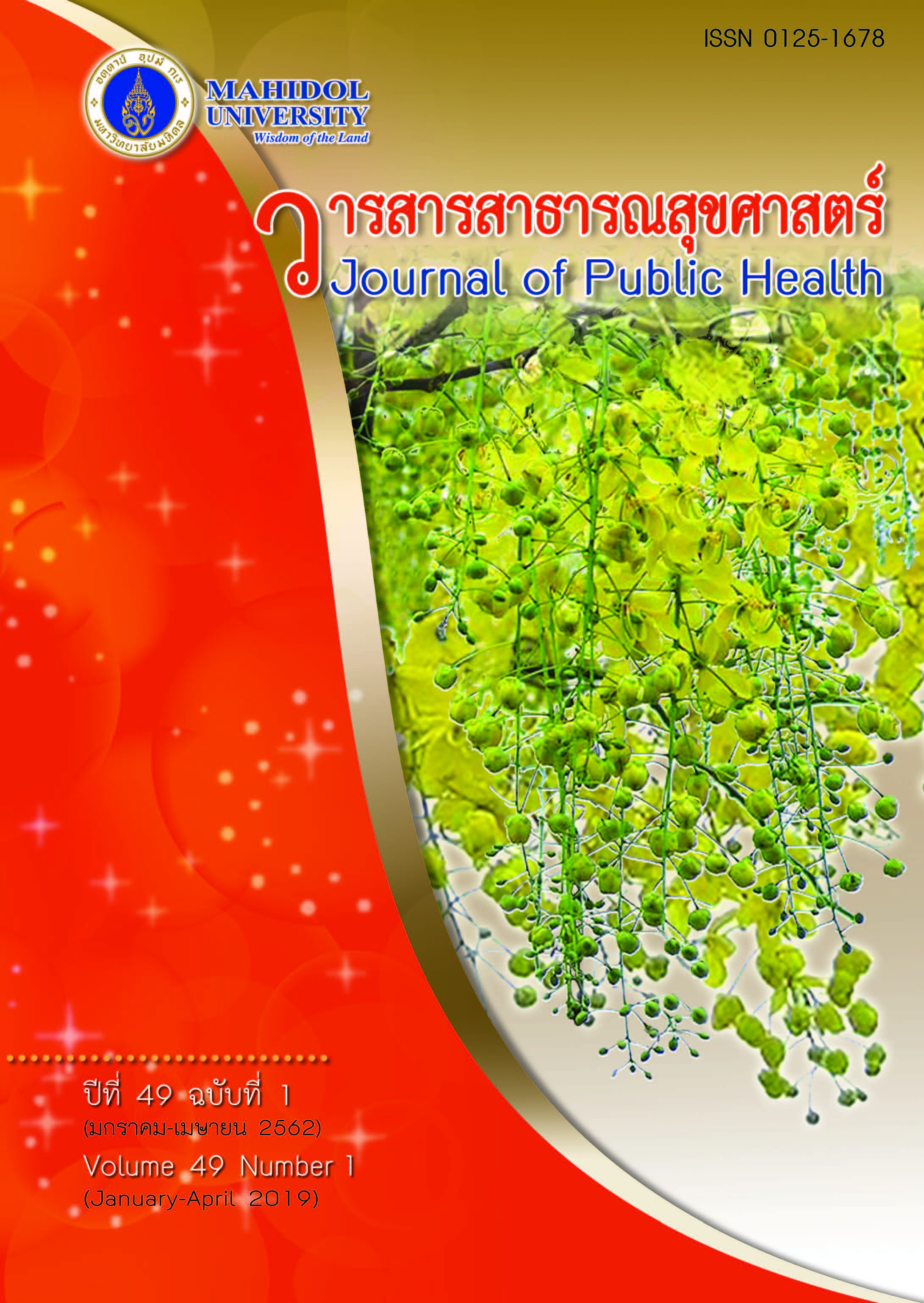Quality of Work Life among Thai Traditional Medicine Assistants in Bangkok Metropolitan
Keywords:
quality of work life, Thai traditional medicine assistant, control at work, employee engagementAbstract
The aim of this descriptive cross-sectional study was to examine the Quality of Work Life – QWL and compare QWL score by personal factors and employment factors among Thai traditional medicine assistants – TTMAs in Bangkok Metropolitan. The samples were 137 TTMAs from three agencies such as; TTM Hospital, TTM foundation/temple, and TTM clinics in university. Data collection was done through a questionnaire. Data were analyzed by using descriptive statistics, independent samples t-test, and one-way ANOVA. The findings revealed that the overall QWL of TTMAs was at a moderate level. Considering QWL aspect, the percentage-mean score in the employee engagement aspect was the highest while the control at work aspect was the lowest. The overall QWL percentage-mean scores of TTMAs were statistically different at p < 0.001 by agency, organizational tenure, working hour, and at p < 0.05 by income and rest period. The study findings lead to recommendation that agency’s administrator should have a policy by setting the working hours not over 6 hours per day and the rest period for TTMAs about 5-10 minutes before giving service the next case to relax and reduce muscle spasm. Besides, TTMAs should be provided the opportunity to participate the organization’s process of decision-making on issues related with them in the workplace which will improve their QWL.
Downloads
Published
Issue
Section
License
Creative Commons License CC-BY-ND


